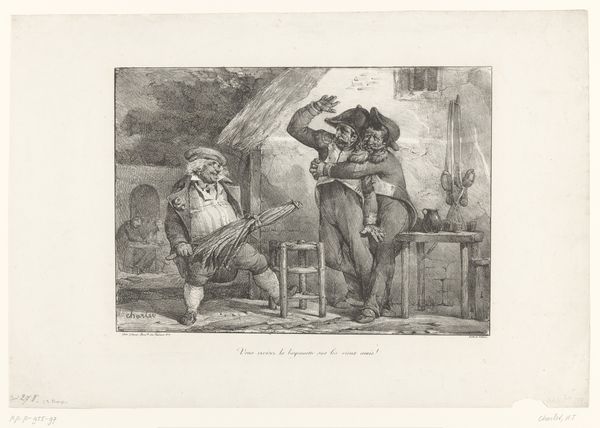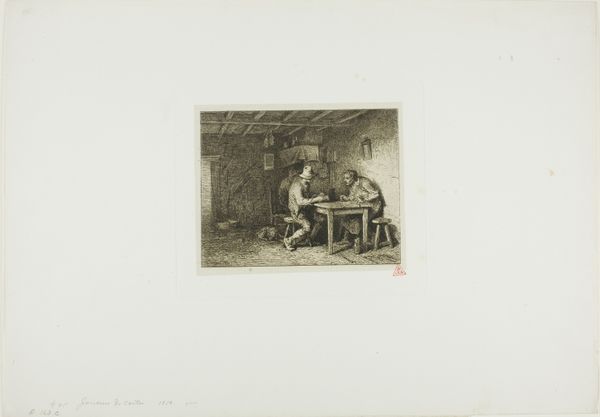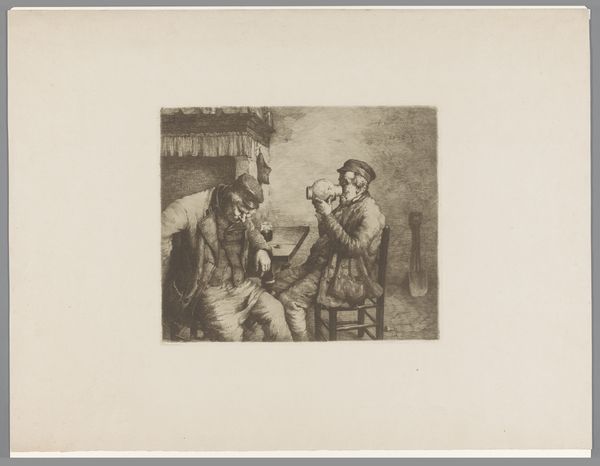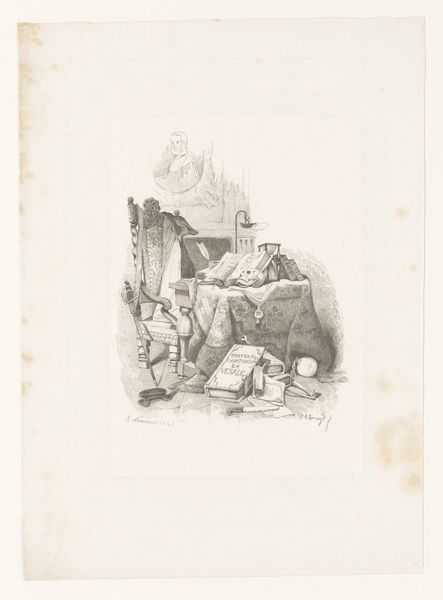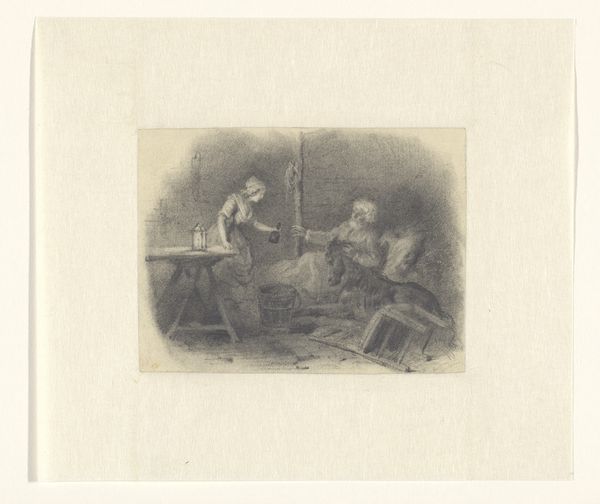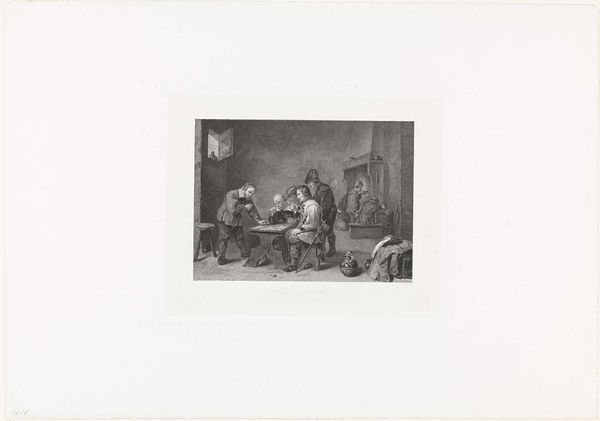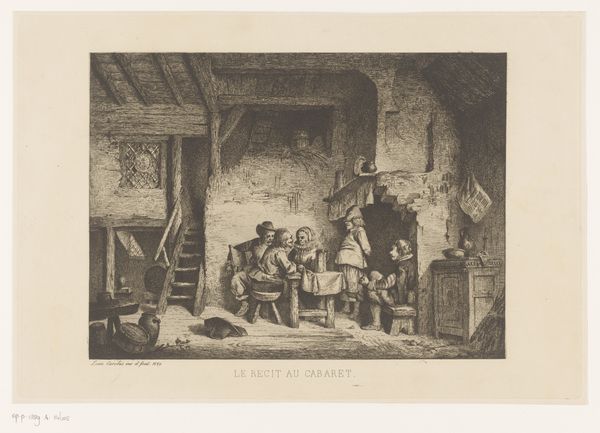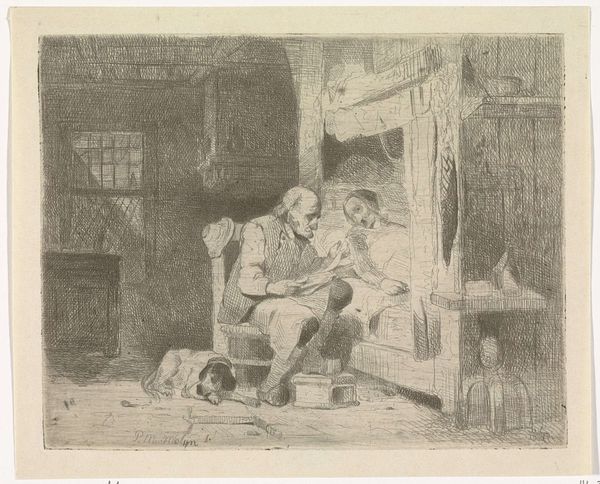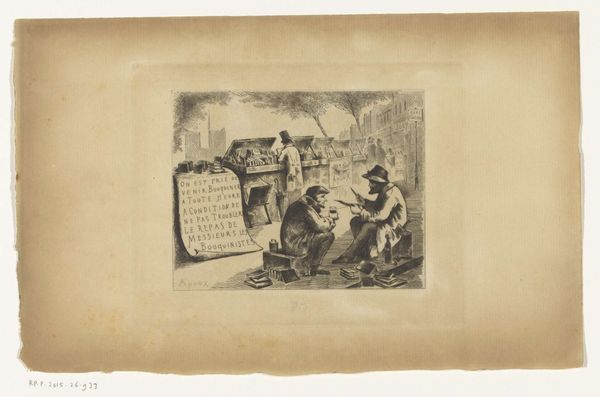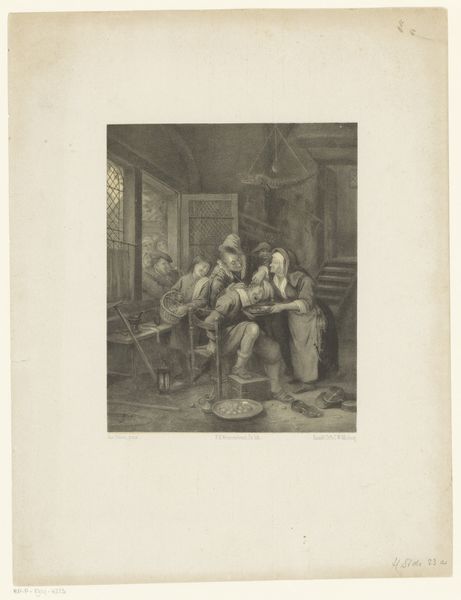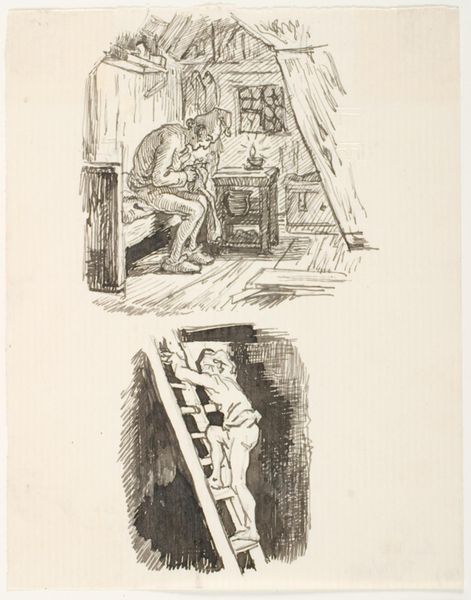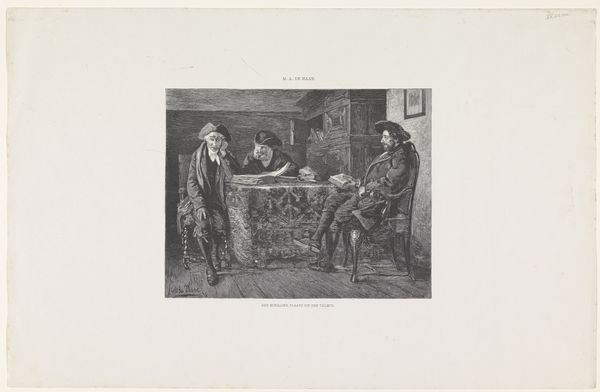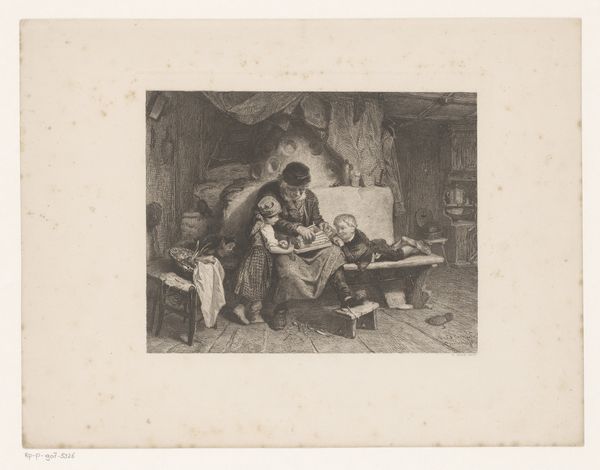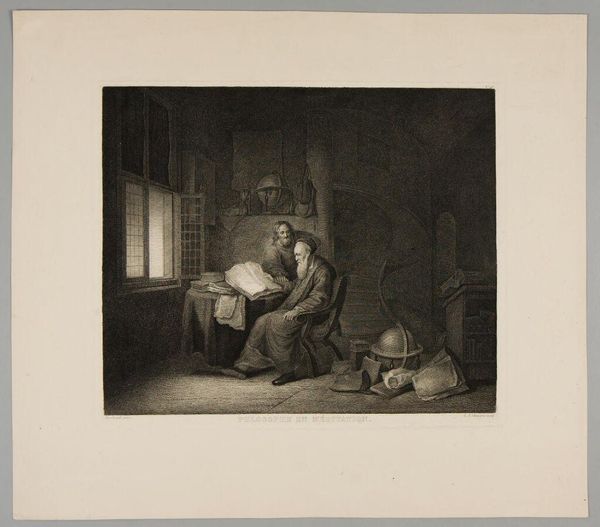
drawing, print, engraving
#
portrait
#
drawing
#
narrative-art
# print
#
old engraving style
#
figuration
#
genre-painting
#
engraving
#
realism
Dimensions: height 222 mm, width 303 mm
Copyright: Rijks Museum: Open Domain
Rombertus Julianus van Arum made this print, "Two Boys, a Man, and a Monkey by a Gate," using a technique called etching. The method involves coating a metal plate with a waxy, acid-resistant substance, then drawing an image into the coating, exposing the metal. Immersing the plate in acid eats away the exposed lines, creating an incised design. Ink is then applied to the plate, filling the etched lines, and the surface is wiped clean. Finally, paper is pressed against the plate, transferring the ink and creating the print. The linear quality so particular to this image reflects the drawn nature of the etching process. It is interesting to consider this work in relation to industrialization. The printmaking process, though capable of producing multiples, still required a great deal of hand work. The resulting image, like so many from this era, romanticizes rural life, perhaps as a counterpoint to the rise of mechanized labor. Ultimately, understanding the labor-intensive process of etching enriches our appreciation of the artwork.
Comments
No comments
Be the first to comment and join the conversation on the ultimate creative platform.
